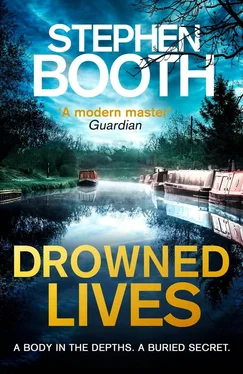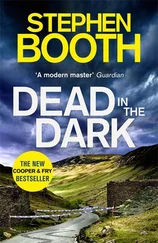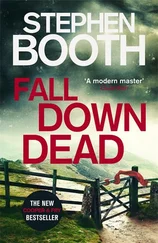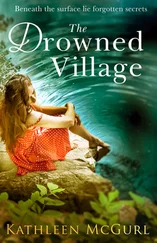I shook my head. ‘They’re not mine. They were Samuel’s. And so they must be his daughter’s now.’
Rachel pulled a face. ‘It seems such a shame. How can you resist taking a peek?’
‘I’ll survive.’
She stroked the wooden box. ‘Tell you what, let me take the box and clean it up. It needs a bit of beeswax and a good polish, and some metal cleaner on the brass. It’ll look beautiful then. It would make a real feature.’
‘Rachel, it doesn’t matter.’
She sat back, disappointed. ‘So when will you give them back?’
‘As soon as I can find someone to give them to.’
She was right, of course. I had an irresistible urge to go through the papers Samuel had left. I had no idea what I’d be looking for, but instinct told me something was waiting to be found in there. It was a half-familiar tingle I felt — one I remembered from my early days as a reporter, when I’d still been young and keen, when the excitement of knowing I was onto a good story was like a sexual thrill.
But I had to ignore it. It was a weakness of mine that I had to fight, that tendency to be sidetracked into some easy option, anything that meant I wouldn’t have to face up to the difficult situations in my life.
Then I remembered Mrs Wentworth. I couldn’t imagine how she might have known about the meeting Samuel had arranged with me. But it was certainly Mrs Wentworth who’d informed the police of my visit to Ash Lodge. I stood up and looked down at Rachel as if I’d never seen her before.
‘In fact, I’m going back to Whittington right now,’ I said.
Of course, I was doing quite the opposite of what I thought. The secrets that lay in Samuel Longden’s manuscript were far from being the easy option.
Mrs Wentworth was surprised to see me. She looked frightened at first, as if she genuinely believed I’d killed Samuel Longden. Then her expression changed to one of embarrassment when I explained why I’d come. She still kept me standing safely on the doorstep, shivering in the wind.
‘The police asked me who’d been to see him recently,’ she said. ‘I had to tell them about you. He never got many visitors, not in the last few years. In fact, you were almost the only one for a while.’
‘It’s all right,’ I said. ‘But did you tell them why I came?’
‘Oh yes, I told them what you said, and that you’d put a note through his door.’ Her face slipped slightly as she recalled that she wouldn’t have been able to see me do that unless she’d been watching me from her kitchen window. But I wasn’t bothered about that.
‘Did you tell them anything else?’
‘No.’ She frowned, puzzled now.
‘I’m not sure how well you knew your neighbour. Did you talk to him much?’
‘Hardly at all,’ she said.
‘Had you spoken to him since I came that day?’
‘No.’
‘I still want to return those items to somebody. Do you know where Mr Longden’s daughter lives?’
‘Caroline? Oh, I couldn’t say. Sometimes she stayed at Ash Lodge with her father, but not for a while. There’s certainly no one there now. I seem to recall she was going away somewhere.’
‘Can you remember where?’
Her brow furrowed. ‘I remember thinking it was an awful long way away. It could have been Australia. Brisbane.’
I didn’t set much store by her memory. She said ‘Brisbane’ as if it were some mythical country way off the edge of the world. I supposed it could just as easily have been Belgium or Burundi. I wondered if Mrs Wentworth had ever been out of England. Being stuck on an island can colour your perception of the world. I speak, of course, as a global citizen who once spent a holiday in Majorca.
‘Did Samuel never go away himself?’
‘Hardly ever. He mentioned he was going to see a friend in Cheshire once or twice, but he was only away for a couple of days. Apart from that, he was always here. Mostly on his own, unless Caroline came.’
‘I suppose he was quite a lonely old man.’
Mrs Wentworth studied me thoughtfully. ‘Caroline will get the house, I imagine.’
‘Yes, she will.’
‘And the kestrel.’
‘Sorry?’ I thought I must have misheard. It was the first indication that Samuel Longden had shown an interest in falconry. I peered over the high privet hedge towards Ash Lodge, expecting to see an aviary that I hadn’t noticed before. ‘Who’s looking after it?’
Mrs Wentworth laughed, a strangely girlish giggle. ‘The Kestrel . Did you think I meant a bird? The Kestrel is a boat. A narrowboat — that’s what they call them, isn’t it? It’s kept on the canal down there.’ She waved vaguely towards the garden at the back of the house. ‘Old Samuel hadn’t been anywhere on it for years, of course. But he still spent a lot of time down there. Tinkering about, I suppose. As men do.’
‘A boat. I didn’t know that. But it makes sense, in a way.’
As soon as I could, I thanked Mrs Wentworth and went back to Ash Lodge. I hesitated for a moment, then determined to check whether she was right about the boat. I made my way through the gate at the bottom of the garden and emerged onto a little path that led to the Coventry Canal. I knew Mrs Wentworth would be watching me from the windows of The Chestnuts, but I didn’t care by now.
The boat was just where she’d said, tied up to a couple of bollards set into the canal bank, almost within view of the upper floor of Samuel’s house. Kestrel was a full-length narrowboat, almost all of its seventy feet being occupied by cabin space where the hold would once have been. But this wasn’t an old working boat which had been converted. It was a more recent job, specially built as a pleasure vessel.
Kestrel was painted green and red, with white rope fenders at its stem and stern, and its name in decorative lettering on the cabin side. Steel shutters covered all the windows, and there was a large padlock on the stern cabin door.
But it was obvious the woodwork hadn’t been re-painted for a while. In places the paint was starting to wear thin and the wood showed through. Streaks of green mould were creeping up the sides of the hull, and a pool of rainwater lay on the deck boards of the counter, where the steerer would stand to control the Z-shaped tiller. It was only short-term neglect, though — the effects of exposure to the weather. Not long ago, this boat had been in first-class condition.
I looked northwards along the canal. The water and towpath looked peaceful after the roads around Lichfield. I began to walk along the gravel path, enjoying being able to step out in quiet surroundings, with no one around. I supposed it might help me to think.
Within a mile, I reached Huddlesford Junction, where the Ogley and Huddlesford Canal branched off from the Coventry. It was in water for only a few hundred yards, until it came to a stop at a bridge. Beyond that, the line of the canal had disappeared under ploughed fields. A few narrowboats were moored on the opposite bank, near to where a bridge crossed the water. A middle-aged couple were polishing brasswork on a boat called Rose Marie , registered in Nottingham.
This was where narrowboats had emerged into the Coventry Canal after descending thirty locks in the seven miles from Ogley. This little junction had been a crucial link in the waterways network, connecting the Birmingham canals to the Trent and Mersey at Fradley, and to the Oxford and Grand Union canals via Coventry. The area must have been thronged with boats at one time. Now the scene was tranquil, most of the pleasure boats moored here still locked up and shrouded for the winter.
I turned my back on the water and saw the Plough Inn across the road in the village of Huddlesford. I decided there was time for a couple of drinks before I walked back to Whittington.
Читать дальше












